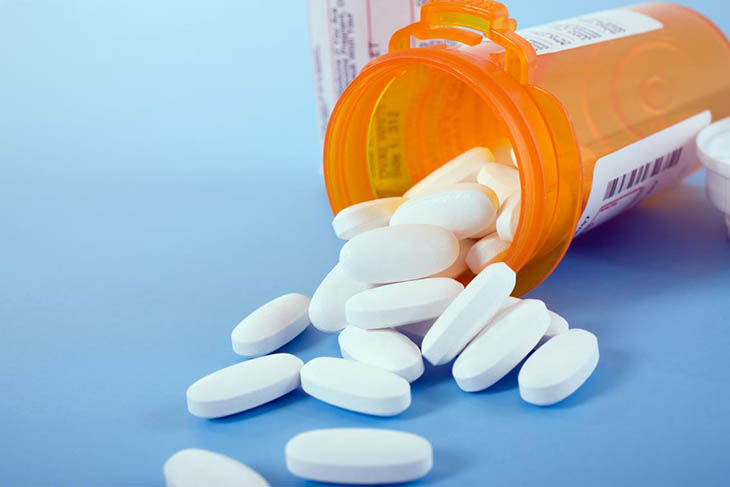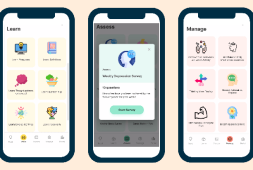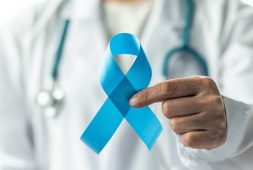
Initial investigation involving over half a million individuals who survived ischemic strokes reveals that Selective Serotonin Reuptake Inhibitors (SSRIs) and Serotonin-Norepinephrine Reuptake Inhibitors (SSNRIs) are generally safe to use, even in the immediate aftermath of the stroke event. It is crucial for patients to engage in discussions with their healthcare providers regarding potential interactions with other medications.
An upcoming study set to be presented at the American Stroke Association’s International Stroke Conference 2024 sheds light on the safety of antidepressant medications for the majority of ischemic stroke survivors, particularly during the critical early stages of recovery. Dr. Kent Simmonds, the study’s lead author and a third-year resident specializing in physical medicine and rehabilitation at the University of Texas Southwestern Medical Center in Dallas, notes that concerns about heightened risk of major bleeding events post-stroke may lead some clinicians to hesitate in prescribing antidepressants. However, the findings suggest that such medications can be considered without significant additional risk.
This means that some stroke survivors may not be able to gain access to the depression treatment they need, which can also have an unwanted impact quality of life, he said. “Unfortunately, this time period (three to six months after a stroke) overlaps with the time when most functional recovery occurs. Our study demonstrates that for most patients, serotonergic antidepressant medications are safe to use, as they were not associated with increased risks of bleeds when started early after a stroke,” said Dr. Simmonds.
40% of Stroke Survivors Go Through Depression
When examined independently within the realm of cardiovascular ailments, stroke assumes the fifth position among all mortality causes, trailing diseases of the heart, cancer, COVID-19, and unintentional injuries or accidents, as per the American Heart Association’s Heart Disease and Stroke Statistics 2024 Update.
Regrettably, individuals who experience a stroke often encounter an additional formidable health challenge: an estimated 20 to 40 percent of stroke survivors subsequently develop depression, as reported by Columbia University Irving Medical Center. Depression can significantly impede the recovery process post-stroke, manifesting in various ways such as diminished medication adherence and reduced engagement in rehabilitation efforts.
Furthermore, research indicates that depression independently heightens the risk of subsequent strokes or other cardiovascular incidents.
Why Doctors Are Careful with Prescribing Antidepressants to Stroke Survivors
The predominant categories of antidepressants, SSRIs and SNRIs, are often not promptly prescribed following a stroke, despite the elevated risk of depression or anxiety post-stroke. Concerns regarding their potential to heighten the risk of hemorrhagic stroke or other severe bleeding events deter their usage, as highlighted by the authors.
This caution stems from the fact that most antidepressants primarily target serotonin, a neurotransmitter intimately involved in blood platelet function, explains Simmonds. Thus, while these medications effectively address mood disorders, their impact on serotonin may introduce additional risks, particularly in the context of stroke recovery.
Study Had More Than 600,000 Stroke Survivors
Researchers examined over 600,000 ischemic stroke survivors’ electronic medical records from 70 major healthcare centers in the United States to analyze the occurrence of severe bleeding among those who were prescribed various types of SSRI and SNRI antidepressants.
The list of SSRI and SNRI antidepressants are as follows:
- Zoloft (sertraline)
- Prozac (fluoxetine)
- Celexa (citalopram)
- Effexor (venlafaxine)
Approximately 35,000 individuals among the survivor cohort were utilizing SSRI or SNRI antidepressants, while 23,000 were utilizing alternative antidepressant medications. The remainder of the participants did not have any antidepressant regimen.
Furthermore, the investigative team encompassed stroke survivors who were concurrently prescribed antidepressants along with various blood-thinning agents, including anticoagulants or antiplatelet medications, which are pivotal in forestalling subsequent blood clot formations.
The severity of bleeding events was delineated by instances of cerebral or gastrointestinal hemorrhages, along with occurrences of shock, a critical condition where hemorrhaging impedes the distribution of blood to the body’s vital tissues.
Antidepressants Said to Be Generally Safe Even During Early Stages of Recovery
Investigators discovered that initiating SSRIs and SNRIs during the critical initial phases of recuperation was generally safe. Stroke survivors who commenced these medications did not exhibit a heightened risk of significant bleeding compared to those who refrained from antidepressant use. This finding held true even for ischemic stroke patients undergoing anticoagulation therapy concurrently.
Additional significant discoveries include:
- When SSRIs or SNRIs were used alongside aspirin and blood thinners, there was a heightened likelihood of experiencing severe bleeding. Despite this, the overall risk remained minimal, with serious bleeding occurrences being infrequent.
- Antidepressants belonging to alternative classes such as Remeron (mirtazapine), Wellbutrin (bupropion), and older tricyclic antidepressants amplified the risk of serious bleeding events by approximately 15 percent when contrasted with antidepressants falling under the SSRI or SNRI categories.
The authors of the study recognized several limitations inherent in their retrospective analysis. Despite employing statistical techniques to mitigate variances among the study groups, it’s conceivable that not all disparities were adequately addressed. Additionally, the study lacked information regarding the dosage, duration, and quantity of antidepressants administered to participants, factors that could potentially influence the outcomes.
Nevertheless, despite these constraints, the results offer valuable insights. Simmonds suggests that clinicians can find reassurance in the findings, indicating that prescribing selective serotonin reuptake inhibitors (SSRI) and serotonin-norepinephrine reuptake inhibitors (SNRI) soon after a stroke appears to be generally safe for managing post-stroke depression and anxiety in the majority of survivors.
Timely Depression Treatment Could Help with Stroke Recovery
Over time, stroke research has predominantly concentrated on preventing strokes or decreasing mortality rates. However, advancements in acute treatments have led to a shift where more stroke patients now survive, albeit often with significant disability, noted Simmonds.
Simmonds emphasized the critical importance of optimizing rehabilitation in the early stages following a stroke. This urgency stems from the time-sensitive nature of recovery, with the majority of functional improvements occurring within the initial months post-stroke.



